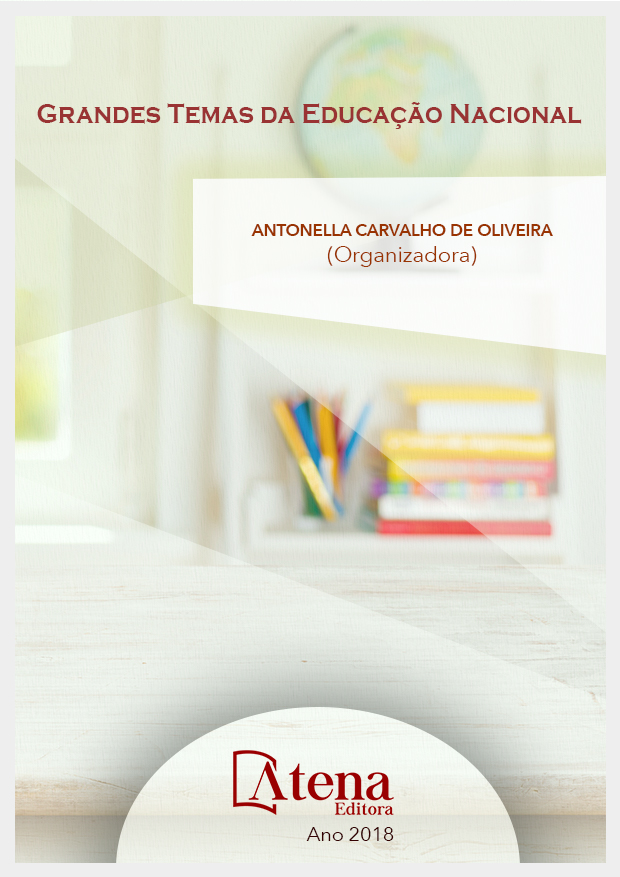
NÍSIA FLORESTA E A CONSTITUIÇÃO DE ESPAÇOS PARA MULHER BRASILEIRA POR MEIO DA EDUCAÇÃO
Ao estudar os intelectuais da história
da educação brasileira do século XIX surgem
vários nomes notáveis, dentre eles, Nísia
Floresta (1810-1885), defensora da educação
das mulheres em um país no qual a partir da
independência no ano de 1822, a educação foi
vista como responsável pela modernização e
civilização. Portanto, este trabalho tem como
objetivo analisar sobre as intervenções que Nísia
Floresta promoveu na sociedade brasileira, no
século XIX, na área da educação. O trabalho
tem por finalidade compreender de que forma
a autora colaborou com a educação e na busca
de espaços para a mulher brasileira, bem como
refletir sobre a atuação de Nísia Floresta na
imprensa, com ênfase no seu caráter educativo.
As fontes utilizadas para essa pesquisa foram
os livros: “Direito das mulheres e injustiças dos
homens”; “Opúsculo Humanitário” e “Cintilações
de uma alma brasileira”, e escritos publicados
na imprensa pela intelectual. Nísia Floresta foi
uma das primeiras mulheres a elaborar uma
perspectiva sobre a possibilidade de autonomia
da condição da mulher com base na educação,
sob um ângulo diferente do que estava posto
na sociedade daquele período. No Império,
a educação escolar brasileira encontrava-se
desorganizada, herança do período colonial,
no qual prevalecia a influência do catolicismo
dogmático. No entanto, esse foi um século
da urbanização crescente e de ideias vindas
da Europa que influenciaram intelectuais
brasileiros. Diante desse cenário, Nísia
Floresta desenvolveu sua produção intelectual,
objetivando uma formação feminina, que
privilegiasse os mesmos conteúdos ensinados
ao sexo masculino.
NÍSIA FLORESTA E A CONSTITUIÇÃO DE ESPAÇOS PARA MULHER BRASILEIRA POR MEIO DA EDUCAÇÃO
-
DOI: Atena
-
Palavras-chave: Educação. História da Educação. Nísia Floresta.
-
Keywords: Education. History of Education. Nísia Floresta.
-
Abstract:
In studying the intellectuals of the
history of Brazilian education of the XIX century,
several notable names arise, such as: Nísia
Floresta (1810-1885). She was an advocate
of the education of women in a country where
from the independence in 1822, the education was seen as responsible for modernization and civilization. Therefore, this text aims
to analyze the interventions that Nísia Floresta promoted in the Brazilian society in
the XIX century in the area of education. The purpose of the text is to understand how
the author collaborated with the education and the search of spaces for the Brazilian
woman, as well as reflecting on Nísia Floresta’s participation in the press, focusing on
her educational character. The sources used to write this research were their books.
Thus, we highlight her following books written in Portuguese language: Direito das
mulheres e injustiças dos homens; Opúsculo Humanitário and Cintilações de uma alma
brasileira, and some written published in the press by the intellectual. Nísia Floresta
was one of the first women to draw up a perspective about the possibility of autonomy
of the woman’s condition based on education, at a different angle than was put in the
society of that period. In the Empire, the Brazilian school education was disorganized.
This was the result of the inheritance of the colonial period in which the influence of
dogmatic Catholicism prevailed. However, this was a century of growing urbanization
and ideas coming from Europe that influenced the Brazilian intellectuals. Nísia Floresta
developed her intellectual production aiming at a female education. In this sense, she
privileged the same content taught to man.
-
Número de páginas: 15
- Isabel Francisco de Oliveira Barion


